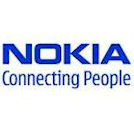Handset king, Nokia, is gradually losing dominance in the industry’s fast emerging and most decisive factor: the Smartphone writes MARTIN EKPEKE with other additional reports.
Nokia, as a market leader in the mobile handset industry, has the traditional strategy of chopping out entry-level devices and lowering production costs, as a result losing market share in the Smartphone market which is both the highest growth and highest margin part of the mobile phone business today.
With 37% of mobile phone owners globally looking to upgrade to Smartphone on their next upgrade cycle, Nokia is of course
losing out to the Apple iPhone, Blackberry because it operates a much closed system and seeks to get too much value from
every part of the ecosystem they touch, thereby stifling innovation both internally and among their partner.
Nokia’s leading innovative position in the Smartphone market started deteriorating with the introduction of Apple’s iPhone,
Android and Blackberry. These devices, with its slick design and users interface, is not only more appealing to end users,
but also to application developers. As such, suddenly the Smartphone market gradually and strongly shifts towards iPhone
and most recently the Blackberry.
Nokia failed to move with the paradigm shift, and somewhat continued to develop expensive devices that no longer attract
the attention of developers or appeal to customers. The old strategy no longer holds; the mobile market is a moving train
and no one including Nokia can ask it to wait.
Even Mobile Network Operators (MNOs) are signing deals with iPhone and other innovative high-end devices that can compete
with iPhone, if not in terms of applications and end users preference, at least with respect to the image of the MNOs being
current and relevant as innovator. So, between the low-cost low-end devices that sell in volumes, and the high-end devices
that follow the iPhone trend, Nokia’s share is expected to decrease.
Nokia is not at the forefront of anticipating and shaping new handset designs that change and reshape consumers view of
what is tempting and fashionable, even the most recently launch NokiaE7 with all its success stories being told, comes with
an outdated Operating System, confirming analysts views that Nokia’s disappointing results are here to stay.
The dynamics of the world handset market are changing under the combined force of newcomers from the worlds of the Internet
and very aggressive vendors from China and Korea, as well as the advent of mobile broadband, surpassing the era of voice
and SMS dominated mobile sector. If you can’t cope with competitive dynamic, you are losing the battle.
As it is now, if anybody can advice Nokia on the possible trend to follow, Nokia needs to develop a device that consumers
will easily be able to keep or transit their applications when they acquire a new mobile device or switch from one network
to another. By so doing, they will be establishing a business model that can derive substantial revenues from these
applications and services.
Nokia is a leader in the mobile phone sector and has what it takes to bring the best Smartphone. To quote editor of Mobile
Communications International Magazine Mike Hibberd, “Maybe we can’t write Nokia off just yet; there’s still tremendous
expertise within its wall. And one thing in its favour is that Microsoft has made Nokia central to its own renewed efforts
in the Smartphone space. But Nokia needs time and it needs fortune. Of the latter it’s had its fair share and time is not
known for its indulgence.”
Developers will also find the platform the most attractive to work with because it will provide them the easiest and most
profitable access to the greatest possible number of devices and networks.
Nokia should look at opportunities for hardware and software integration that create superiority in aspects of performance
from the responsiveness of and user experience with applications to power consumption.
Without this model, Nokia’s future will be one of inevitable decline, no matter how many partnerships agreement they have
with Microsoft or other MNOs as Blackberry and iPhone is the bomb now.
It’s a shrinking market here
Nokia is bound to feel the bite of its shrinking fortunes in emerging markets such as Nigeria’s which is expected to lead
the switchover to Smartphones in Africa. Nigeria is the largest telecom market in Africa and accounts for 16% of the mobile
subscribers on the continent as at September 2010. Predictably, smartphones and feature phones have sold more in Nigeria
than in any other African country.
Already, the Harmattan (Nigeria’s equivalent of winter) has set in for Nokia in Africa’s biggest mobile market with
frightening encroachment by cheaper Smartphones from Chinese handset makers led by Tecno. But it is from Samsung that Nokia
appears to be having its biggest ache. A reworked market strategy marked by more aggressive campaign aiming at high-end
consumers has ensured steady sales rise for the South Korean brand.
“Nokia has to re-energize its presence. Being visible is not just enough. The consumers are becoming more sophisticated
and more opened to choices. If Nokia remains complacent, it would soon be out of consumers’ first choice,” said Lagos based
analyst Oluseni Bamikole. It’s up to Nokia to prove analysts right or wrong.






























